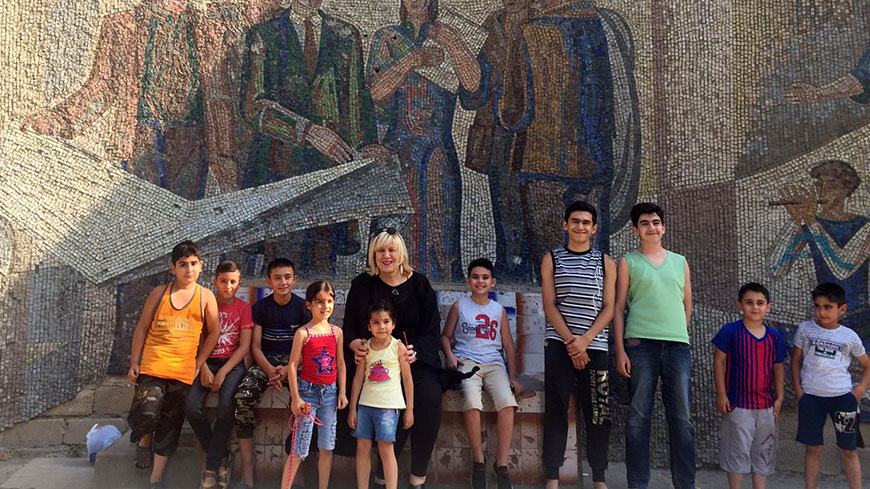The Council of Europe Commissioner for Human Rights, Dunja Mijatović, published today the report on her visit to Azerbaijan, with recommendations on how to ensure freedom of expression, increase the number of lawyers and the quality of legal assistance in the country, and empower internally displaced persons (IDPs).
The Commissioner regrets that no progress has been made regarding the protection of freedom of expression. Journalists and social media activists who express dissent or criticism of the authorities are continuously deprived of their liberty on a variety of charges that defy credibility. She once again calls on the authorities to release all those detained because of the views they expressed and to fully implement several judgments of the European Court of Human Rights relating to arbitrary restrictions of freedom of expression.
The Commissioner expresses doubts as regards the lawfulness of the travel bans imposed on dozens of journalists, lawyers, political activists and human rights defenders, stressing that the authorities must refrain from imposing arbitrary or disproportionate travel bans and lift immediately those which are in contradiction with the right to leave the country. The Commissioner also recommends decriminalising defamation and bringing legislation and practice affecting Internet freedom in line with European standards.
Commissioner Mijatović observes that there is an acute shortage of lawyers, in particular in the regions outside the capital, which prevents many people from having access to legal assistance and representation. Noting that several steps have been taken by the authorities and the Bar Association to increase the number of lawyers in the country, Commissioner Mijatović calls on the government to step up its efforts in that direction. She also underlines that the qualification process for a lawyer’s admission to the Bar must become fairer and more objective and the independence of the Bar Association, as well its role in the representation and defence of the interest of its members, must be strengthened.
The Commissioner calls on the authorities to take immediate measures to ensure that the right of access to quality legal assistance is effectively guaranteed to all persons as from the very outset of their deprivation of liberty. “The authorities should adopt a law on legal aid in line with Council of Europe standards and ensure that all persons effectively enjoy the right to legal assistance,” she said.
The use of disciplinary sanctions – like disbarment - on improper grounds and unclear criteria remains a serious concern. “Most of the lawyers recently disbarred or who had their licenses suspended were working on cases considered as politically sensitive,” says the Commissioner. “This suggests that disciplinary proceedings are used as a tool for punishing lawyers who take on sensitive cases. The Bar Association must strengthen the procedural safeguards to ensure that proceedings against lawyers are transparent and fair. It is also crucial to uphold lawyers’ right to express their views on matters of public interest.”
The Commissioner commends the steps taken by the authorities to help people displaced as a consequence of the unresolved conflict over the Nagorno-Karabakh region. She reiterates the importance of overcoming the decades-long impasse and finding a peaceful solution to that conflict, so that the people who wish to return may do so on a voluntary basis, in safety and dignity.
Many internally displaced people have been relocated to settlements built for them and benefit from housing free of charge. However, many others live in dormitories and collective centres in dire or substandard conditions, have no possibility to own the apartments in which they have been resettled and their needs are not always considered in the allocation of housing. Several obstacles also hamper income-generation and self-reliance opportunities for IDPs, especially for persons living in the rural regions and urban areas outside Baku. “The authorities should further enhance IDPs’ access to all economic and social rights, in particular the right to adequate housing and the right to employment. It is crucial to provide livelihood opportunities to ensure that IDPs achieve self-sufficiency and do not entirely depend on government assistance,” said the Commissioner.
A majority of internally displaced children study in schools which were built or intended just for IDPs and are thus being educated separately from the rest of the population. The Commissioner recommends ensuring mixed schooling and mapping the specific needs of IDPs, in order to better respond to the various challenges they face.
Lastly, the Commissioner recommends lifting the restrictions imposed on IDPs’ right to vote in municipal elections in the constituencies where they reside and ensuring the full participation of IDPs in decision-making processes.



